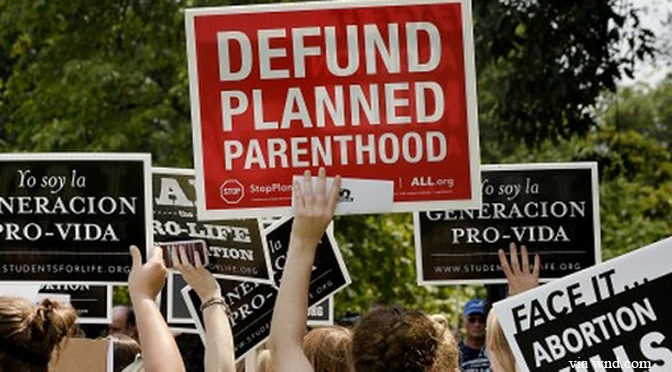For one state, defunding Planned Parenthood is again in play. This week, the United States Supreme Court threw out a lower court ruling that had blocked South Carolina from ending public state funding to Planned Parenthood, sending the case back to the Fourth Circuit Court of Appeals for review.
The case, Kerr v. Planned Parenthood South Atlantic, arises out of South Carolina’s termination of Planned Parenthood South Atlantic’s Medicaid provider agreement due to Planned Parenthood’s inclusion of abortion among its services. In South Carolina, Medicaid only covers abortions in certain instances required by federal law, such as rape, incest, or the need to protect the mother’s life (read more about why intentional killing via induced abortion is not necessary).
On July 13, 2018, South Carolina’s governor issued an executive order claiming that the purpose of the order was to prevent South Carolina from indirectly subsidizing the practice of abortion. The order said that “the State should not contract with abortion clinics for family planning services.” It then directed Department of Health and Human Services (“DHHS”) to deem any “abortion clinics, as defined by section 44-41-75 of the South Carolina Code of Laws, as amended, and any affiliated physicians or professional medical practices, as identified and defined by Executive Order 2017-15, that are enrolled in the Medicaid program as unqualified to provide family planning services and, therefore, to immediately terminate them upon due notice and deny any future such provider enrollment applications for the same.”
On that same day, according to the initial lawsuit, the State’s DHHS sent Planned Parenthood a letter stating that it was “no longer . . . qualified to provide services to Medicaid beneficiaries” and that its “enrollment agreements with the South Carolina Medicaid programs [were] terminated” effective immediately. Two weeks later, Planned Parenthood South Atlantic and one of its patients, Julie Edwards, filed a lawsuit which argued “that the organization provides ‘safe, legal abortion outside the Medicaid program’ and that the order violated federal law allowing Medicaid recipients to seek care from any qualified provider.”
At issue in the case, according to SCOTUS Blog, was “(1) Whether spending-clause statutes ever give rise to privately enforceable rights under 42 U.S.C. § 1983, and if so, what the proper framework is for deciding when they do; and (2) whether, assuming spending-clause statutes ever give rise to privately enforceable rights under Section 1983, the Medicaid Act’s any-qualified-provider provision creates a privately enforceable right to challenge a state’s determination that a provider is not qualified to provide certain medical services.”
But according to Alliance Defending Freedom (ADF), which represented the State in the case, “After South Carolina determined that Planned Parenthood was not qualified to receive taxpayer funding as part of its Medicaid program, a federal district court forced the state to restore Planned Parenthood’s funding, concluding that Medicaid recipients have a right to choose their preferred provider.”
“Representing the director of the South Carolina Department of Health and Human Services, ADF attorneys appealed to the 4th Circuit, which ruled against allowing the state to terminate Planned Parenthood as a qualified Medicaid provider. ADF attorneys then filed a petition with the Supreme Court asking it to hear the case and affirm that the Medicaid Act does not create a private right for Medicaid recipients to challenge a state’s decision that a specific provider like Planned Parenthood is not qualified to receive taxpayer funding,” ADF added.
ADF claimed the High Court’s remanding of the case for reconsideration came in light of the Supreme Court’s decision in a separate case — Health and Hospital Corporation of Marion County v. Talevski. According to ADF’s Senior Counsel Chris Schandevel, “Congress did not unambiguously create a right for Medicaid recipients to drag states into federal court to challenge those decisions, so no such right exists. The Supreme Court’s recent decision in Talevski makes that even clearer.”
Nationally, there is a litany of egregious reasons why a state might wish to defund Planned Parenthood besides the hundreds of thousands of preborn babies they target with abortion annually. Former employees have filed multiple accusations of racism against the corporation, and others have alleged they treat clients and employees poorly. The abortion organization has failed to report child sexual abuse as well.
Planned Parenthood’s latest 2021-22 annual report reveals that in one year, the abortion corporation took in the largest amount ever recorded in taxpayer/government revenue – a whopping $670.4 million as of June 30, 2022, a large portion of which comes from Medicaid. Tragically, Planned Parenthood now receives over $1.8 million dollars from U.S. taxpayers every day while ending the lives of over 1,025 preborn babies every single day — nearly 43 per hour, and one every 84 seconds.
“Pro-life states like South Carolina should be free to determine that Planned Parenthood and other entities that peddle abortion are not qualified to receive taxpayer funding through Medicaid. And we’re grateful the 4th Circuit will have another opportunity to hold that Congress did not intend to allow federal courts to second guess states’ decisions about which providers are qualified to receive Medicaid funding,” Schandevel said in response to the Supreme Court’s ruling.








